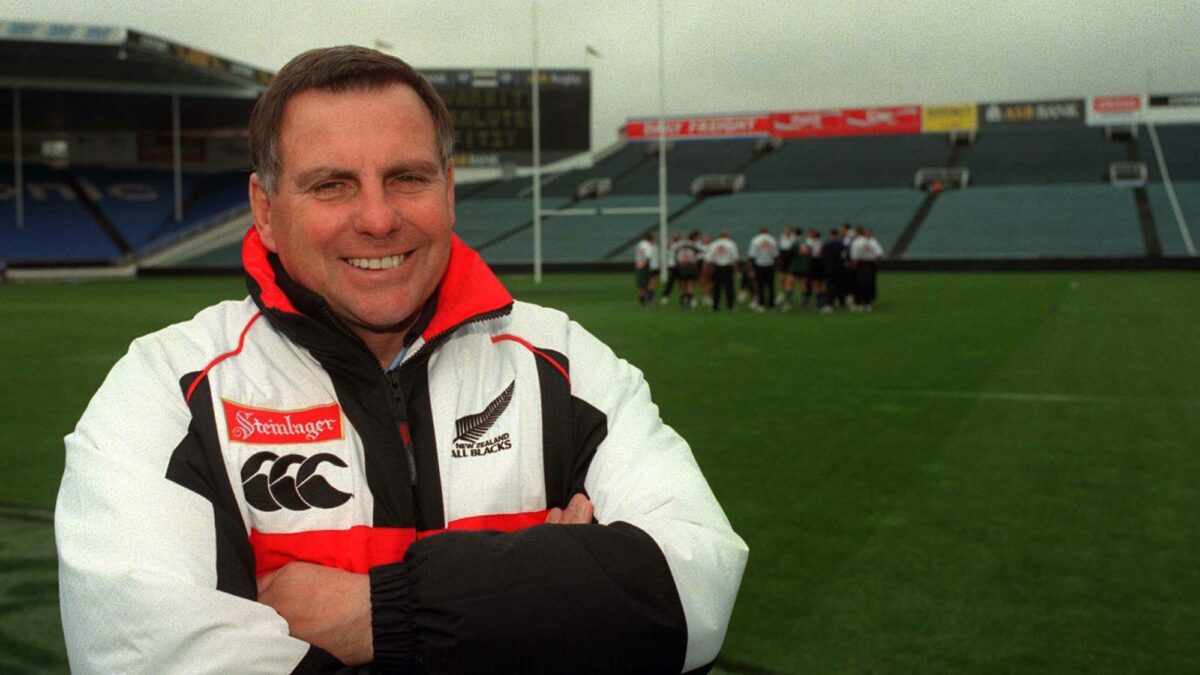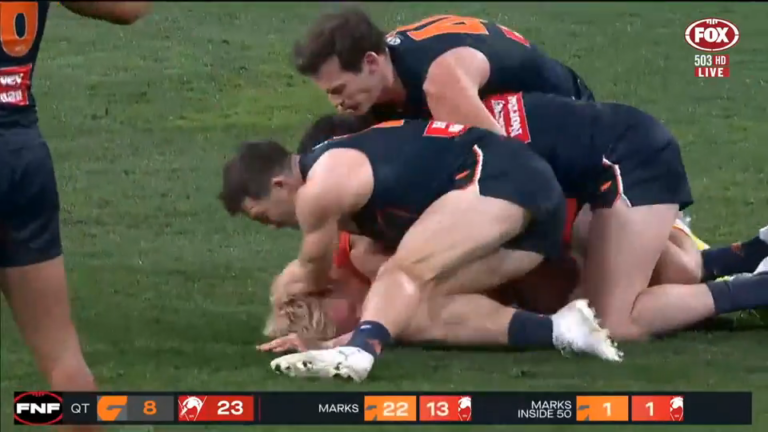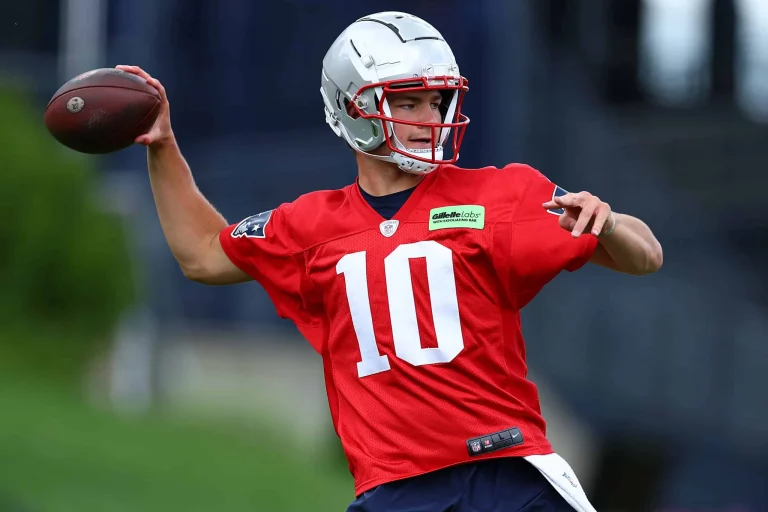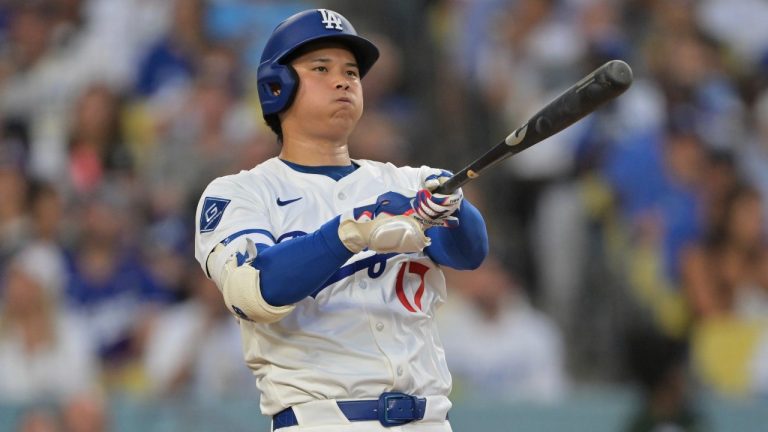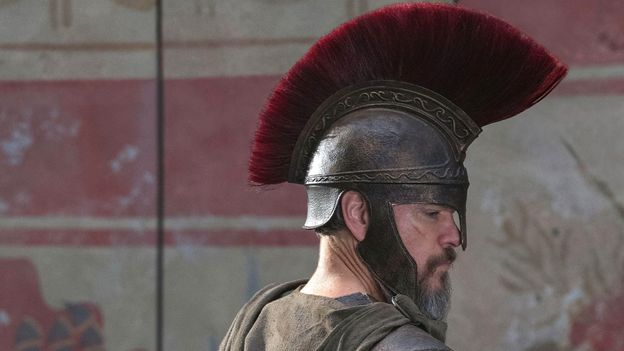John Hart was a polarising figure in New Zealand, but he gets my commendation for his ability to bring a professional, business-like approach to rugby when it was needed and relate to players like Jonah Lomu, who became a friend of Hart’s, with the two forming an unlikely relationship.
Even though they were quite different characters, Hart was asked by Lomu’s family to speak to the media, at an emotional time when Jonah passed away in 2015.
As with any leader there will be those players who are followers and those who enjoy a different approach to coaching, no different with John Hart. I am sure there was fall-out when Hart took up the reins in 1996 and brought an alternative method when rugby went professional.
Gone were the days of seniority ruling fresh players, and alcohol-fuelled nights were outdated. One view from the BBC was, “his autocratic, business-like style brought him as many enemies as friends.”
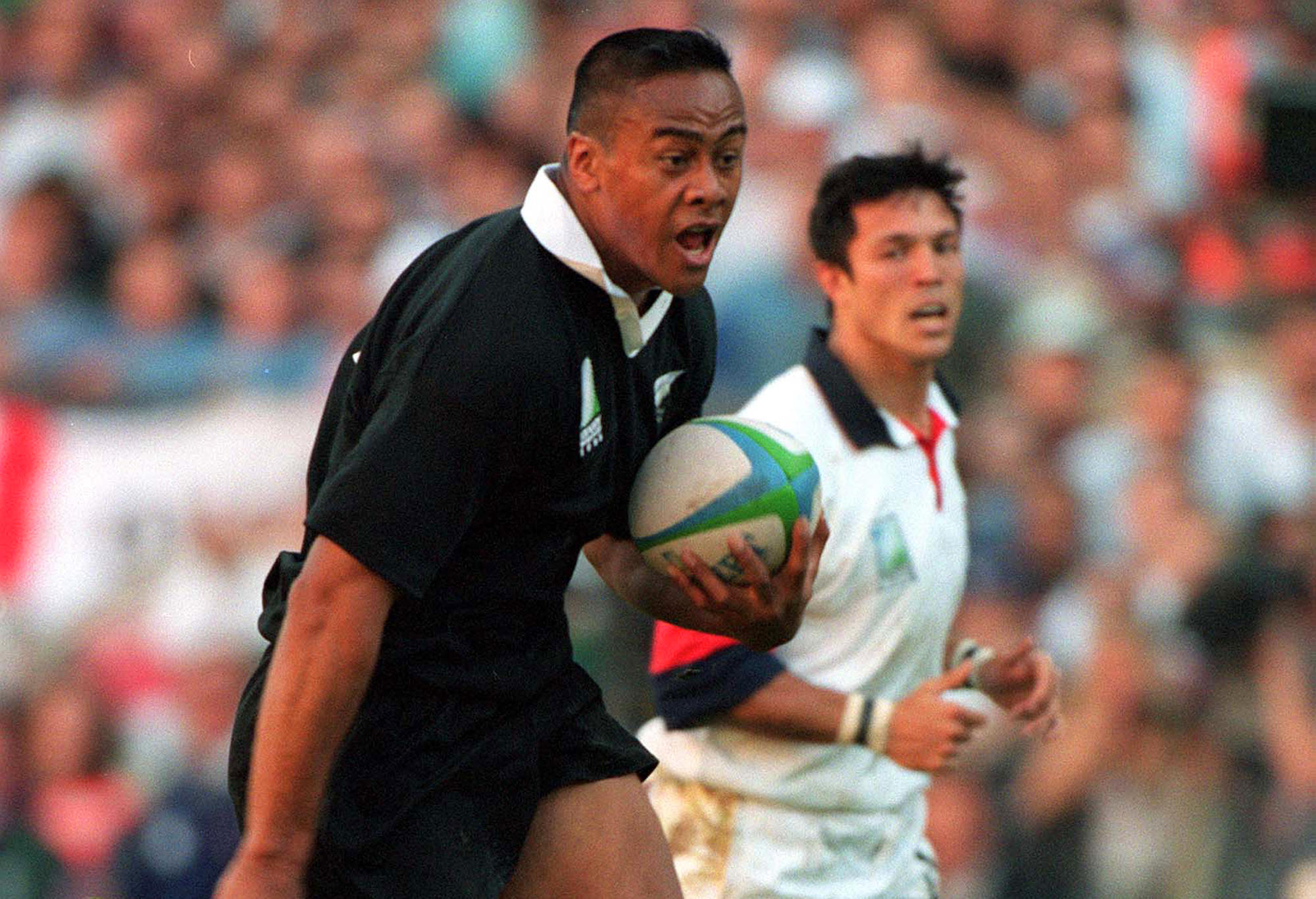
Jonah Lomu scoring yet another 1995 Rugby World Cup try.(Photo by Mark Leech/Offside/Getty Images)
Former All Black Ian Jones stated on Dom Harvey’s podcast that “Hart was the ideal man to take the All Blacks from amateur to professional ranks, because of his organisational, business and motivation skills.”
Those who are single-minded and not afraid to express an opinion like Hart, often become victims of the tall-poppy syndrome in New Zealand. If you appear confident it can be perceived by others as arrogance, which does not fit the humble, stereotypical Kiwi.
An Auckland businessman is on the back foot immediately upon being announced as All Black coach, especially by Canterbury supporters.
Which brings me to the disgraceful behaviour of, and I use the term loosely, supporters at the horse races in Christchurch. Even in 2025 I cannot believe this happened in 1999. After losing the semi-final against France in the 1999 Rugby World Cup and then losing to South Africa in the play-off, Hart cancelled a family holiday to face the music back home.

All Black Coach John Hart in 1998. (Photo by Ross Land/Getty Images)
In a decision he came to regret Hart decided to go to the races where vitriol was unleashed by certain “supporters.“ “One guy spat in my face,” Hart said. “They threw beer cans at my horse when he went out on the track. The horse didn’t know what he’d done wrong! He was the favourite and he got beaten by a nose which was probably ominous. It wasn’t a great day in my life.”
The behaviour left an indelible impact on Hart and he spiralled into a depressed state where he became isolated, not working or going out. Sadly, the impact affected his parents and family. A call from John Bayley at Bayleys Real Estate offered a glimmer of hope which Hart accepted and he became the project manager for an auction to raise money for Team New Zealand. He was eternally grateful to Bayley and light appeared at the end of the tunnel.
John Bernard Hart CNZM was born 1945 in Auckland and grew up in a state house in Mt Roskill and attended Mt Roskill Grammar School where he excelled. He advanced to the University of Auckland and later worked for Fletcher Challenge, one of New Zealand’s biggest companies.
He played for Auckland, but in his opinion was just a good club and rep player, not an All Black.
Coaching is where he shone, including a memorable period with Auckland where he coached the team to three NPC titles and a record 61 consecutive Ranfurly Shield challenges. They won so much it was starting to get boring!
Hart stated that the amateur Auckland team from the 80s was the most professional team he coached. He added that, “I have been fortunate enough to have been involved with and coached some of the greatest modern-day players – John Kirwan, Jonah Lomu, Christian Cullen, Jeff Wilson, Sean Fitzpatrick, Zinzan Brooke, Wayne Shelford, Andy Haden and Grant Fox. I marvel at the greatness of Richie McCaw, Daniel Carter and Conrad Smith, and the emerging greatness of Kieran Read.
“But to me, clearly the greatest All Black of modern times is Michael Jones. Without peer, a man who played all three loose forward positions, and with the skills to play in the midfield. A freak on the field and a gentleman off it.”
As All Blacks head coach, Hart won 31 games from 41 with one draw. The highlights included winning the Tri-Nations title three times and his greatest feat, conquering South Africa for the All Blacks’ first-ever series win in South Africa 1996.
In all rugby he compiled an 85% winning rate in first class matches, an exemplary record. Around the time of the 2003 Rugby World Cup loss, he went through a marriage separation, then his new partner died, but he is in a rewarding relationship now.
After rugby union, Hart became the Executive Director of Football at the Warriors and became a mentor to coach Ivan Cleary, who left the club in circumstances which led to Hart resigning from his position. A dream job came his way as the organising committee chairman of the NZ PGA Pro-Am in a game he labels as “special.”
Interesting thoughts from Hart include believing that New Zealand has become too politically correct and children need boundaries and to be successful. Oh, and he did admit that Tana Umaga was probably the better choice at centre for the 1999 Rugby World Cup rather than Christian Cullen!
Was John Hart a man before his time in the 90s and would he have had even more success if he was coaching an experienced, professional team in 2025?
